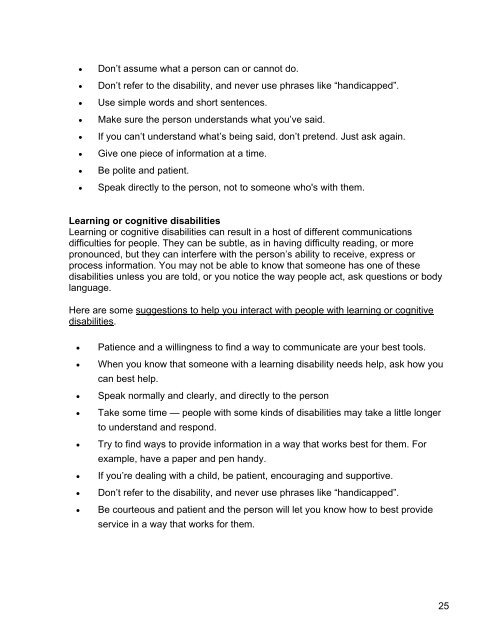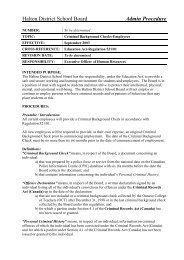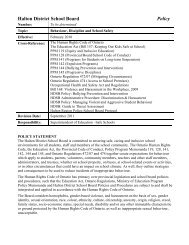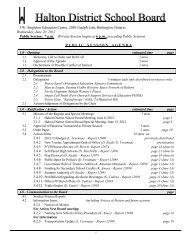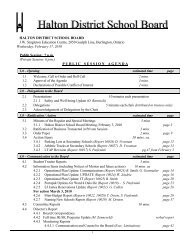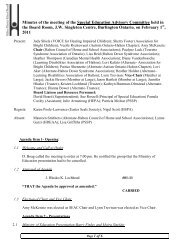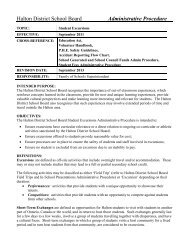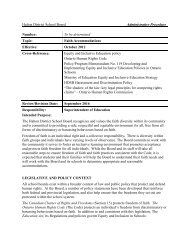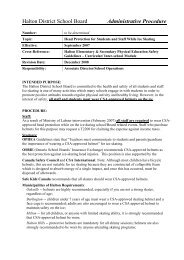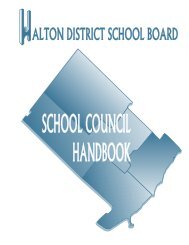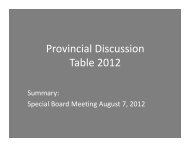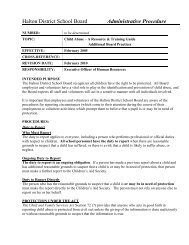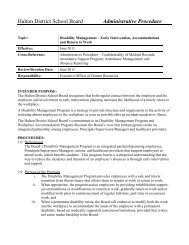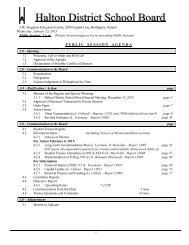2006-2007 Accessibility Plan - Halton District School Board
2006-2007 Accessibility Plan - Halton District School Board
2006-2007 Accessibility Plan - Halton District School Board
You also want an ePaper? Increase the reach of your titles
YUMPU automatically turns print PDFs into web optimized ePapers that Google loves.
• Don’t assume what a person can or cannot do.<br />
• Don’t refer to the disability, and never use phrases like “handicapped”.<br />
• Use simple words and short sentences.<br />
• Make sure the person understands what you’ve said.<br />
• If you can’t understand what’s being said, don’t pretend. Just ask again.<br />
• Give one piece of information at a time.<br />
• Be polite and patient.<br />
• Speak directly to the person, not to someone who's with them.<br />
Learning or cognitive disabilities<br />
Learning or cognitive disabilities can result in a host of different communications<br />
difficulties for people. They can be subtle, as in having difficulty reading, or more<br />
pronounced, but they can interfere with the person’s ability to receive, express or<br />
process information. You may not be able to know that someone has one of these<br />
disabilities unless you are told, or you notice the way people act, ask questions or body<br />
language.<br />
Here are some suggestions to help you interact with people with learning or cognitive<br />
disabilities.<br />
• Patience and a willingness to find a way to communicate are your best tools.<br />
• When you know that someone with a learning disability needs help, ask how you<br />
can best help.<br />
• Speak normally and clearly, and directly to the person<br />
• Take some time — people with some kinds of disabilities may take a little longer<br />
to understand and respond.<br />
• Try to find ways to provide information in a way that works best for them. For<br />
example, have a paper and pen handy.<br />
• If you’re dealing with a child, be patient, encouraging and supportive.<br />
• Don’t refer to the disability, and never use phrases like “handicapped”.<br />
• Be courteous and patient and the person will let you know how to best provide<br />
service in a way that works for them.<br />
25


